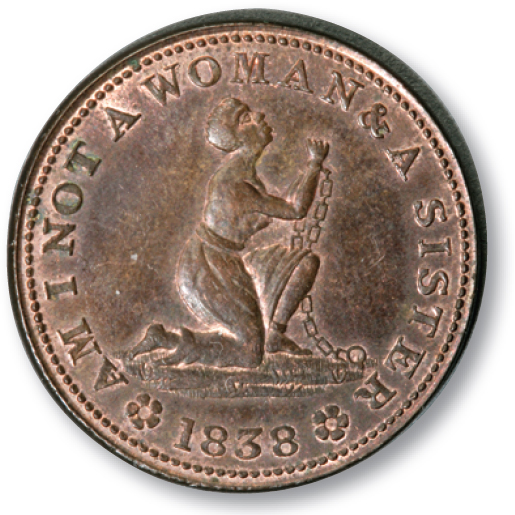The Fugitive Slave Act.
Printed Page 365 Chapter Chronology
The Fugitive Slave Act. The issue of runaway slaves was as old as the Constitution, which contained a provision for the return of any "person held to service or labor in one state" who escaped to another. In 1793, a federal law gave muscle to the provision by authorizing slave owners to enter other states to recapture their slave property. Proclaiming the 1793 law a license to kidnap free blacks, northern states in the 1830s began passing "personal liberty laws" that provided fugitives with some protection.

Some northern communities also formed vigilance committees to help runaways. Each year, a few hundred slaves escaped into free states and found friendly northern "conductors" who put them aboard the underground railroad, which was not a railroad at all but a series of secret "stations" (hideouts) on the way to Canada.
Furious about northern interference, Southerners in 1850 insisted on the stricter fugitive slave law that was part of the Compromise. According to the Fugitive Slave Act, to seize an alleged slave, a slaveholder simply had to appear before a commissioner and swear that the runaway was his. The commissioner earned $10 for every individual returned to slavery but only $5 for those set free. Most galling to Northerners, the law stipulated that all citizens were expected to assist officials in apprehending runaways.
Fugitive Slave Act
A law included in the Compromise of 1850 to help attract southern support for the legislative package. Its strict provisions for capturing runaway slaves provoked outrage in the North and intensified antislavery sentiment in the region.
In Boston in February 1851, an angry crowd overpowered federal marshals and snatched a runaway named Shadrach from a courtroom, put him on the underground railroad, and whisked him off to Canada. Three years later, when another Boston crowd rushed the courthouse in a failed attempt to rescue runaway Anthony Burns, a guard was shot dead. To white Southerners, it seemed that fanatics of the "higher law" creed had whipped Northerners into a frenzy of massive resistance.
Actually, the overwhelming majority of fugitives claimed by slaveholders were reenslaved peacefully. But brutal enforcement of the unpopular law had a radicalizing effect in the North, particularly in New England. To Southerners, it seemed that Northerners had betrayed the Compromise. "The continued existence of the United States as one nation," warned the Southern Literary Messenger, "depends upon the full and faithful execution of the Fugitive Slave Bill."